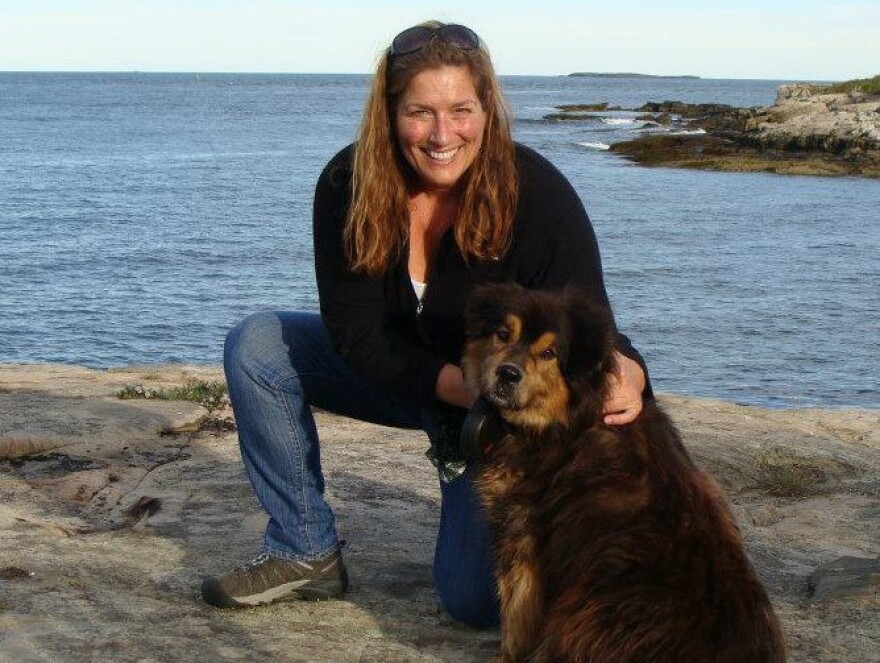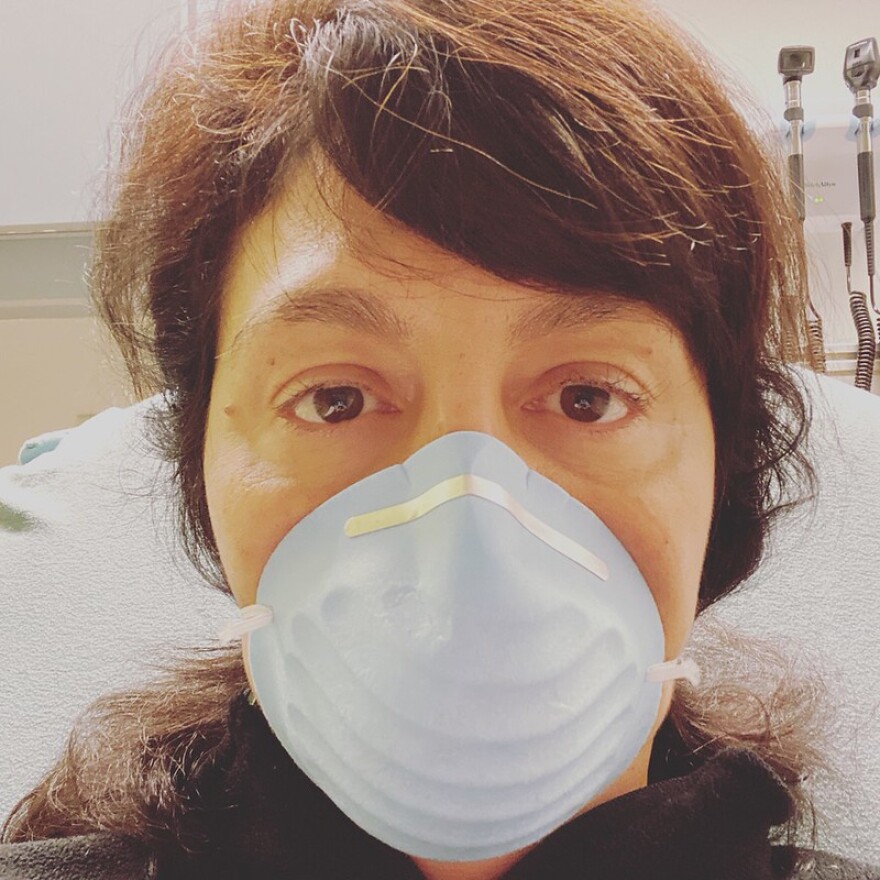COVID-19, caused by the new coronavirus can be a serious, life-threatening disease. But most people — about 80 percent of confirmed cases — have mild to moderate symptoms. Still, for those who come out the other side, there are lingering questions — and frustrations. Several Mainers are either contending with the virus or have recovered. They’ve shared their stories with Maine Public.

The first thing that tipped off Deborah Napier that something was wrong wasn't a cough or a fever. It was an onion.
"And I'm peeling it, and chopping it. And I'm going, this isn't bothering me at all. I'm not smelling it, it's not affecting my eyes. What's going on here?"
She sautéed it. Added garlic. But she couldn't smell or taste it. This lasted for days, and when she called her doctor, she was told it could be precancerous growths in her nose. But after Napier shared that she had recently traveled to New York, and that her granddaughter — who had just spent the night — now had a fever and sore throat, her doctor sent her to a drive-through clinic to get tested for COVID-19.
"Which was very Orwellian. They came outside, had facial screens on and long gowns and gloves. It was really something."
Three days later, her results came back positive, which was actually good news.
"Because I said, oh my gosh, I don't have cancerous tumors up my nose, thank God."
A loss of smell and taste has been linked to COVID-19. Even though it's not listed as an official symptom, it was among the strongest that Napier experienced, along with exhaustion.
"I was going through something that I thought was depression those first few days. I couldn't get out of my own way. I had to drag myself with great determination out of bed."
Napier suspects she got the new coronavirus during her trip to New York in early March.

But 55-year old Chris Wolff of Topsham says she doesn't know where she got the infection. She practiced physical distancing after her work office closed March 12. A few days later, she developed a fever and headache.
"And the only outlier was a food shopping trip to Portland. And since there's community spread in Portland, I assume that's where I might have picked it up. Because when I tested positive, I was only one of four positive cases in Sagadahoc County at that point.”
Along with the fever and headache, Wolff says she felt short of breath. She'd get winded just walking her dog around the block.
"It was scary. I mean there's so little known about this. Of course you jump to the worst conclusion. 'Oh my God, I'm going to end up in the hospital on a ventilator.' And ya know, I'm older, and I have some underlying health things, so it's hard not to have your mind go to the worst case scenario. Luckily I'm one of the milder cases."
The fear of the unknown is shared by others who have COVID-19 — and those who care for them. Roger Katz, a former state senator who lives in Brunswick, says he took his wife Ericka to Maine Medical Center after she developed a fever and had trouble breathing.
"The scariest moment was just going down to that emergency room and not knowing what was going to happen when she went through those doors."
Katz couldn't follow her in because hospitals are barring most visitors to prevent the spread of the coronavirus. He's had to continue keeping his distance after doctors examined Ericka and told her she had COVID-19, though they didn't use a test because of the limited supply.

"It's a real disconnect because, when your wife is sick, the first thing you want to do is hug her and comfort her, and that's exactly what you can't do under these circumstances, and you have to maintain complete physical distance. And that's very hard to do, and keep doing day after day."
He and his wife have developed a kind of dance at home. He sleeps in the guest room and she stays in the bedroom. He delivers plates of food to a table just outside the door. They've synchronized two TVs so they can watch shows at the same time, but not in the same room.
"I do a lot of hanging out with her, but I'm at the door, probably 15 feet away. And that's about as close as we get.”
Some days are better than others, Katz says. Ericka has asthma and she still has some difficulty breathing. But overall, she's improving.
"You worry what the next hour's going to bring and the next day's going to bring, and hope that every day just gets a little bit better."
Katz says he is concerned that Ericka isn't in the official state count. And there are others who worry about that too. Jennifer Lariviere of Buxton says it's on her mind when she watches the daily updates from the Maine Center for Disease Control.

"And seeing every day them saying, you know, here's the amount of cases every day. But then my husband and I are sitting here and are like, those numbers could be a lot higher. But you just don't know, because we could be two more cases adding to the state's number, and you're not even testing us."
A couple weeks ago, Lariviere says she developed a fever, along with chills, coughing, and body aches. She called her doctor, who told her she probably had COVID-19 and should stay at home. A few days later, after Lariviere's husband developed symptoms, she called her doctor again.
"...And ended up doing a video chat where she could see both of us, and she said, 'I'd be surprised if you don't have it. But we just don't have enough tests.' So again, we were turned down from getting an actual test."
Which is frustrating for Lariviere. If she and her husband knew they had recovered from COVID-19, she says they'd be in a better position to help others. Even people who tested positive share this frustration. Deborah Napier, who temporarily lost her sense of smell and taste, is now officially recorded as recovered. But she says when she asked the CDC whether she could get out and volunteer because she may have immunity, she was told, "Oh no, no you can't do that. Because we can't be sure."
Napier says she hopes the United States figures out a way to expand testing so people will know whether they have antibodies for the new coronavirus.
"How are we going to get our society back together, if those of us who have recovered are told we cannot go out and help, we cannot go out and volunteer?"
For now, Napier says her story may at least provide some hope to others. She was in the high-risk age group for COVID-19, got it — and recovered.
For disclosure, Roger Katz is a co-host of The Maine Event, a weekly public affairs talk show that airs on Maine Public Television.
Originally published 5:04 p.m. April 9, 2020




